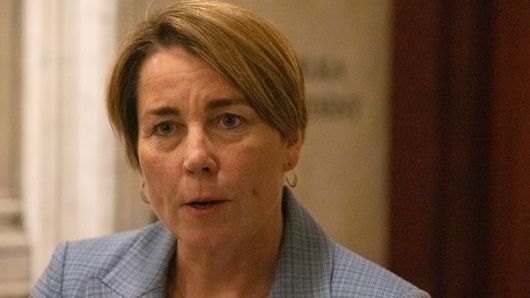BOSTON - A public health standards bill that died on the last governor's desk is back before the Legislature, and supporters are more hopeful since there's a new occupant in the corner office.
The legislation, which both branches approved unanimously last session, is meant to accelerate improvements to local and regional public health systems to address disparities in public health services by requiring the Department of Public Health to enshrine a set of standards for "foundational public health services" across Massachusetts and to "promote and provide adequate resources for boards of health."
The SAPHE 2.0 bill (H 2204 / S 1334) would implement epidemiology, investigation, credentialing, data-collection and other public health standards at the local and regional levels. Supporters say the state's 351 municipalities have varying public health responses, a problem that was exacerbated during the pandemic.
Massachusetts is one of a handful of states that does not dedicate annual baselines or formula funding to local public health departments.
"Diseases and other public health challenges do not stay within municipal borders," said Northampton Mayor Gina-Louise Sciarra at a recent Joint Committee on Public Health hearing on the bill. "Having someone living in a town nearby whose community does not fund public health nursing, since there's no current state requirements to do so, they may come to Northampton and work, eat, play and spread infection despite our own very well staffed Department of Health and Human Services."
Sciarra was one of a number of local officials who testified in favor of the bill, including officials from the small remote community of Aquinnah, to the larger and more well-resourced city of Newton.
The bill calls for the state to provide "annual non-competitive funding to ensure that all residents of the commonwealth are provided with foundational public health services that meet or exceed the standards set" in addition to competitive grants for regional or shared public health services, and grants and technical assistance for individual municipalities "that demonstrate limited operational capacity to meet local public health responsibilities."
It is nearly identical to the bill that both chambers passed last summer, and advocates said they are hopeful that this month's hearing on the bill could be an indication that legislative leaders plan to move it forward quickly.
They also hope Gov. Maura Healey will be more amenable to bill than former Gov. Charlie Baker, who last August sent the bill back to lawmakers with an amendment that would have instead allowed cities and towns to opt in to the standards and only allow them to access Department of Public Health aid if they maintain the same level of local public health funding as the most recent year before adopting the new baselines.
Last session, House and Senate Democrats waited until the last days of formal sessions to pass the bill, and did so without an agreement in place on it with the governor. When Baker sent the bill back with amendments, the bill died during informal sessions, when the threshold for passing bills is higher.
Melanie Ames Zamojski of the Franklin Regional Council of Governments and the Western Mass Public Health Association said the bill is of "great importance" to the 171 rural communities in the state.
"The government of these towns really struggle with limited water, sewer, broadband infrastructure, limitations on commercial activities, it means that these communities have a lot less to spend on local public health. And as our state today, as you know, is one of the only ones in the nation that has no standards for local public health performance and credentials, this means that there are vast inequalities in the protections in Massachusetts rural communities," she said.
Mayors, board members, administrations and boards of health across western Massachusetts sent a letter to the committee with more than 100 signatures in support of the bill.
But not all at Thursday's hearing were in favor. The co-founders of Health Rights MA opposed the bill, saying that recent "coercive medical treatment in Massachusetts" during the COVID-19 pandemic caused "serious concerns" about increasing state power in public health.
"The governor never should have been granted such broad powers during a public health emergency," Health Rights MA founder Julie Booras said. "I'm certain that the lawmakers that passed those laws expanding emergency powers way back in 1956 to broadly include 'public health' didn't realize the ramifications of how those powers could be abused in the future. And they were abused, badly."



